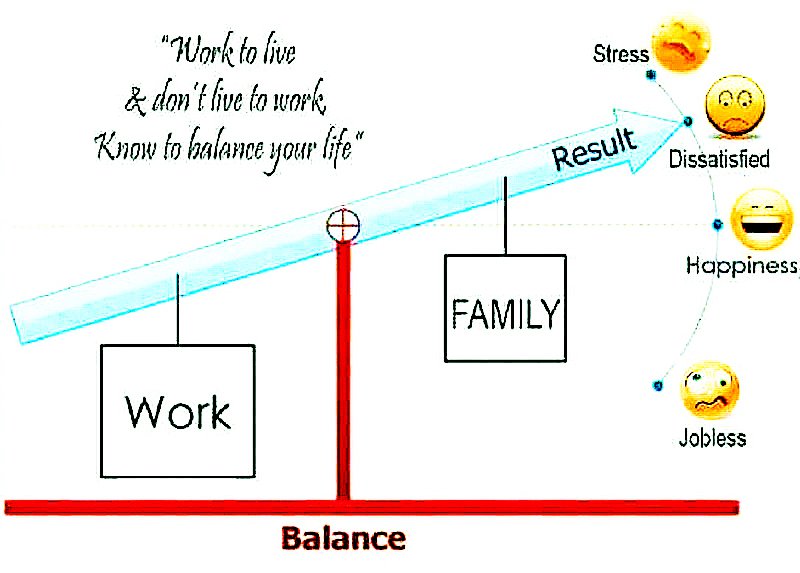#Leadership : What Bad Bosses Can Teach You About Good Leadership…List of 10 Things a Bad Boss can Teach you about Good Leadership, for the Day When you Might Have his (or her) Job
A lot has been written about what makes a bad boss, or about bosses to avoid or signs you are working for a bad boss. And then what – leave? To go where? Today’s business world is so precarious may of us don’t know if we’ll be in the same company from one week to the next, let alone report to the same person.
In the belief that the only thing you can really change in the world is your point of view, I offer this list of 10 things a bad boss can teach you about good leadership, for the day when you might have his (or her) job…
1. Mutual respect. I had a boss once who – in staff meetings – would actually sneer at those with whom she disagreed, who wouldn’t hesitate to openly criticize someone’s efforts. This is one step shy of public ridicule. The result was a marked decline in initiative and innovation and a general malaise of spirit within the department that was noticeable and remarked upon by senior management. Ultimately her behavior outweighed performance in removing her from her position.
“To handle yourself, use your head; to handle others, use your heart.” —Eleanor Roosevelt
Like this Article ? Share It ! You now can easily enjoy/follow/share Today our Award Winning Articles/Blogs with Now Over 2.5 Million Growing Participates Worldwide in our various Social Media formats below:
FSC LinkedIn Network: (Over 15K+ Members & Growing!) www.linkedin.com/in/frankfsc/en
Facebook: (over 12K) http://www.facebook.com/pages/First-Sun-Consulting-LLC-Outplacement-Services/213542315355343?sk=wall
- Google+: (over 800K)https://plus.google.com/115673713231115398101/posts?hl=en
- Twitter: Follow us @ firstsunllc
educate/collaborate/network….Look forward to your Participation !
Continue of article:
2. Communication is a two-way street. One boss had three styles when it came to communicating with staff verbally, and “listening” wasn’t one of them: bullying, pontificating, and droning on. The message that came through was that she really didn’t much care what anyone else thought or had to say. The result? People toed the line and had a field day mimicking her behind her back.
“The day the soldiers stop bringing you their problems is the day you stopped leading them. They have either lost confidence that you can help them or concluded that you do not care. Either case is a failure of leadership.” —Colin Powell
3. Know who’s the boss. If that’s your title, then it’s you. You don’t have to hold off making a decision until the last minute to watch your staff scramble to meet the deadline just so they’ll know who has the authority around here. That’s sabotage.
“A leader … is like a shepherd. He stays behind the flock, letting the most nimble go out ahead, whereupon the others follow, not realizing that all along they are being directed from behind.” —Nelson Mandela
4. Pay staff well and equitably. I once had a boss who suggested I hire a women for an open position because it would be cheaper than hiring a man. I didn’t. Make it cheaper, that is. A salary is a sign of worth, and if someone learns he or she is being paid less than someone else doing the same kind of job, you can leave yourself open to legal action. That’s in addition to being a jerk.
“Management is doing things right; leadership is doing the right things.” —Peter F. Drucker
5. Hire good people, share your vision, and then let them get on with it in their own way. Don’t let your staff’s competence make you uncomfortable or nervous. You’re there to lead an entire team, to clear the path for them so you can reach your targets — not meddle in their daily work.
“Don’t tell people how to do things, tell them what to do and let them surprise you with their results.” General George Patton
6. Give the credit; take the blame. Too often, it’s the other way around, with the boss taking on for him- or herself the team’s achievements while offloading failure. That’s exploitation. This tactic fools no one, no matter which end of the corporate ladder you’re trying to impress.
“The ultimate measure of a man is not where he stands in moments of comfort, but where he stands at times of challenge and controversy.” —Martin Luther King, Jr.
7. Don’t play favorites. I had one boss whose principle business relationship centered around his second in command. The two played tennis together, their families went to dinner together. That left the other 96 people working at that company out in the cold. So none of them could (or would?) come to the rescue when eventually the Board of Directors, tired of lackluster performance from the CEO, ousted him one day… and his sidekick followed. Aside from putting yourself at risk of corporate lynching, playing favorites sidelines the valuable talents of everyone else.
“If you want to build a ship, don’t drum up the men to gather wood, divide the work, and give orders. Instead, teach them to yearn for the vast and endless sea.” —Antoine de Saint-Exupry
8. Keep your distance. I don’t mean “aloof’ — as in the sense of being cold or void of compassion. But there needs to be a bit of a “no fly zone” between you and your staff. The people over whom you have some control, and on whose efforts your company relies, shouldn’t have to bear the burden of your personal problems.
“Leaders must be close enough to relate to others, but far enough ahead to motivate them.” —John C. Maxwell (contemporary American author, pastor and speaker)
9. Lead by example. This almost goes without saying. Actions always speak louder than words. Say less, if you have to.
“Example is not the main thing in influencing others. It is the only thing.” —Albert Schweitzer
10. Trust your people. If you don’t, you may find yourself on the receiving end of words and deeds that are not as promised, whereas sometimes bestowing trust on someone is enough to make him or her live up to expectations. The trust you give out comes back to you.
“There is a difference between being a leader and being a boss. Both are based on authority. A boss demands blind obedience; a leader earns his authority through understanding and trust.” —Klaus Balkenhol (German equestrian and 1992 Olympic gold medalist)
And finally, be comfortable in your own skin:
”It’s hard to lead a cavalry charge if you think you look funny on a horse.” —Adlai E. Stevenson II
Follow me on Twitter @sckarabell1
Forbes.com | June 6, 2016 | Shellie Karabell – CONTRIBUTOR : I cover leadership – people, politics & policy – from a European view






 Responding to emails during off-work hours isn’t the only area in which you need to set boundaries. You need to make the critical distinction between what belongs to your employer and what belongs to you and you only. The items that follow are yours. If you don’t set boundaries around them and learn to say no to your boss, you’re giving away something with immeasurable value.
Responding to emails during off-work hours isn’t the only area in which you need to set boundaries. You need to make the critical distinction between what belongs to your employer and what belongs to you and you only. The items that follow are yours. If you don’t set boundaries around them and learn to say no to your boss, you’re giving away something with immeasurable value.